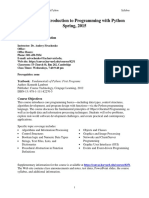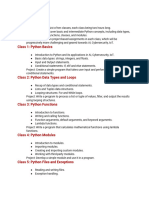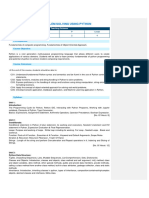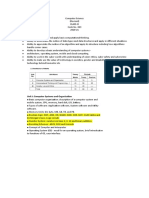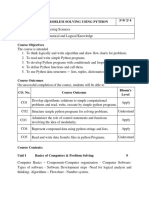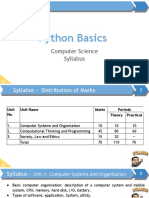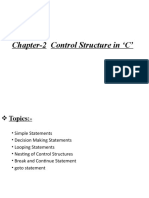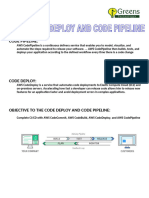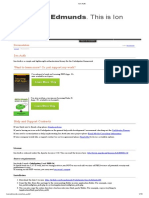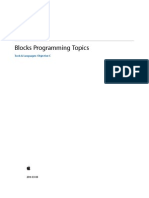0% found this document useful (0 votes)
119 views5 pagesPython Programming Syllabus For Secondary School Student
The syllabus outlines a one-year Introduction to Python Programming course for secondary school students in grades 9-12, covering foundational to intermediate programming concepts. It includes hands-on projects, assessments, and resources to enhance learning, with topics ranging from basic syntax to web and game development. The course emphasizes problem-solving skills and real-world applications of programming.
Uploaded by
nipor83948Copyright
© © All Rights Reserved
We take content rights seriously. If you suspect this is your content, claim it here.
Available Formats
Download as PDF, TXT or read online on Scribd
0% found this document useful (0 votes)
119 views5 pagesPython Programming Syllabus For Secondary School Student
The syllabus outlines a one-year Introduction to Python Programming course for secondary school students in grades 9-12, covering foundational to intermediate programming concepts. It includes hands-on projects, assessments, and resources to enhance learning, with topics ranging from basic syntax to web and game development. The course emphasizes problem-solving skills and real-world applications of programming.
Uploaded by
nipor83948Copyright
© © All Rights Reserved
We take content rights seriously. If you suspect this is your content, claim it here.
Available Formats
Download as PDF, TXT or read online on Scribd
/ 5




